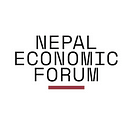Weekly Economic Updates (22 May 2024–28 May 2024)
3 min readMay 29, 2024
- 62% of Nepali Population Involved in Agriculture- Newly published Economic Survey 2080/81 states that about 62% of the population in Nepal is involved in agriculture while its share in the GDP of Nepal has been consistently decreasing.
- Bagmati Province Contributes the Most to Nepal’s GDP — Data from the National Statistics Office reveals that Bagmati Province is the largest contributor to the GDP of Nepal. With 34.6% of GDP coming from the province in the current fiscal year, Bagmati Province remains one of the country’s strategic regions.
(Source: https://english.khabarhub.com/2024/23/357209/)
- Increasing Women’s Representation in Government Services- The share of women workers in government services, which was 12% a decade ago, is now 28.5%, with the majority working in the health sector.
- Dhorpatan Hunting Reserve has Resumed Operations- After a slowdown during the pandemic, Nepal’s sole hunting area has begun to attract affluent foreigners who are willing to pay millions of rupees for a chance to hunt down the Blue Sheep and the Himalayan Tahr widespread in that region.
(Source:https://kathmandupost.com/money/2024/05/26/nepal-s-only-hunting-reserve-is-back-in-busines)
- 15 Public Enterprises Operating at Loss — As reported in the annual review status of public enterprises presented in the parliament, 15 public enterprises, including Nepal Airlines Corporation (NAC) have been operating at a loss for the last two years. However, the overall net profit of public enterprises increased by 3046.20% in FY 2023/24.
(Source:https://www.newbusinessage.com/Articles/view/21094)
- Government Arrears up by NPR 95.60 billion — According to the annual report of the Office of the Auditor General, the government arrears increased by Rs.95.60 billion to reach Rs. 669 billion in fiscal year 2022/23.
- Improvement in Economic Growth Set — Nepal’s economy is set to rebound this year, with the World Bank’s ‘Nepal Development Update’ projecting Nepal’s economy to grow by 3.9% in FY 2023/24 and the Asian Development Outlook estimating economic growth to be 4.9% even though inflation is expected to stay elevated this year.
(Source: https://thehrmnepal.com/report/economic-growthset-to-rebound-in-2024/)
- Project to Strengthen Response to GBV in Nepal — The World Bank director for Nepal and the Minister of Women, Children and Senior Citizens jointly launched a $4.6 Million project to help increase better access to gender-based violence response services in 6 municipalities in Koshi and Lumbini Provinces.
(Source: https://shorturl.at/9QcXh)
- QR Payment System for Nepalis in India — Nepal’s Central Bank is planning to launch a QR code payment system for Nepali residents to make payments in India by the end of the current fiscal year. The ongoing work suggests capping payments at INR 100,000 (NPR 160,000) either as a single transaction or cumulatively.
(Source:https://kathmandupost.com/national/2024/05/24/nepal-to-roll-out-qr-code-system-in-india-by-mid-july.)
- Over NPR 286 million in Royalties yet to be Recovered — The records of the Department of Electricity Development show that NPR 286.995 million remains to be recovered from various hydropower projects in Nepal. The office has suggested the establishment of legal provisions to impose interest and damages as there are currently no penalty charges for the late receipt of royalties due from projects.
